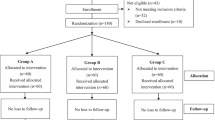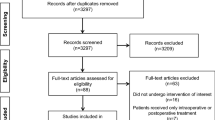Abstract
Recombinant human erythropoietin (rHuEPO) is effective in allowing autologous blood donation in patients unable to donate because of anemia. As adverse effects of rHuEPO might include activation of coagulation and possibly fibrinolysis, we investigated these possibilities in the context of autologous blood donation preceding hip surgery. Thirty-seven patients who donated 800 ml of autologous blood for elective hip surgery were randomly assigned to either a group of 20 receiving preoperative treatment with rHuEPO (erythropoietin β), 6000 U i.v. twice weekly for 3 weeks, or an untreated control group of 17. A significant increase in platelet count was associated with autologous blood donation and intraoperative blood loss with or without rHuEPO. Coagulation and fibrinolysis were increased significantly by intraoperative blood loss in both groups, but not by rHuEPO. Coagulation and fibrinolysis were not activated by rHuEPO for elective hip surgery.
Similar content being viewed by others
Author information
Authors and Affiliations
Additional information
Received: 23 December 1998
Rights and permissions
About this article
Cite this article
Hasegawa, Y., Takamatsu, J., Iwase, T. et al. Effects of recombinant human erythropoietin on thrombosis and fibrinolysis in autologous transfusion for hip surgery. Arch Orth Traum Surg 119, 384–387 (1999). https://doi.org/10.1007/s004020050434
Issue Date:
DOI: https://doi.org/10.1007/s004020050434




